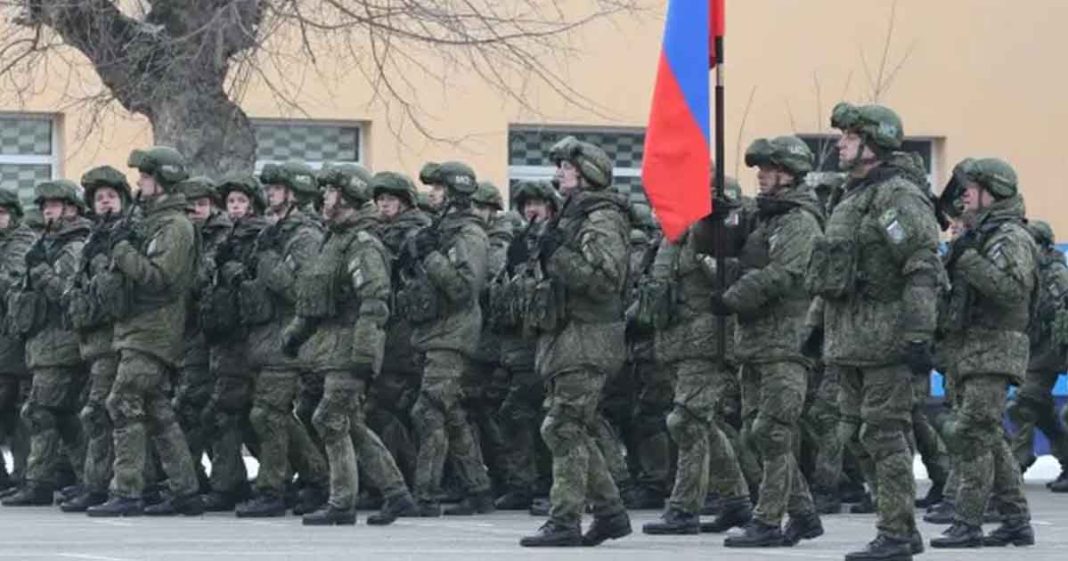At the beginning of this month, Kazakhstan faced the scene of bloody events that put the oil-rich Central Asian country in the global spotlight. The brutality killed more than 220 people, while the dismantling of masses’ property and disturbance of economic life will cost it some $3bn. President Kassym-Jomart Tokayev announced the unrest “an unprecedented act of violence and assault on our statehood” and requested help from the Collective Security Treaty Organization (CSTO), a military alliance of six former Soviet countries.
These incidents, which came as we start the fourth decade after the disintegration of the Soviet Union, will have a significant impact not only on this resource-rich country but also on the post-Soviet space as a whole and Russia its relations with the West.
Read more: Kazakhstan offers natural resources to Pakistan
How did the violence begin?
The spark of the violence came at the starting of January when the government proceeded with another cut in fossil fuel subsidies, which more than doubled the price of liquified petroleum gas (LPG). It caused widespread anger, especially in the western region of the country, where between 70 and 90 percent of vehicles use this type of fuel and where most of Kazakhstan’s oil production is situated.
The main thing is that the western part has long been neglected by the central government, despite its crucial contribution to the state budget (oil being the biggest source of state revenue for Kazakhstan), only deepened the resentment. Local residents suffer from high rates of poverty and unemployment and are often treated as second-class citizens by the centre. That is why social protests have taken place there quite often.
For example, on December 16, 2011, Kazakhstan’s day of independence, protests against socioeconomic hardship and unpaid dues to oil workers erupted in the oil-rich town of Zhanaozen. More than a dozen people died when the police launched a brutal crackdown. In 2018, there were also demonstrations to mark the anniversary of the massacre and the following year – against Chinese economic expansion in Kazakhstan and the employment of Chinese workers.
Given past unrest in the region, the government’s reaction to the protests in early January appeared quite delayed and ineffective. Tokayev waited a day to send two government officials to the West, who tried to calm people down, promising to bring back the old prices.
Read more: Kazakhstan, like Ukraine, spotlights the swapping of the rule of law
But by then, public anger had boiled over across Kazakhstan
In the south, Almaty, the former capital of the Soviet Republic of Kazakhstan and a significant economic and political hub, also became engulfed by unrest and news of the first victims of the violence started emerging. The local officials responded by shutting down the internet, but that also turned out to be a strategic mistake, as it sent people to the streets to find out what was going on.
As the condition worsened, it was clear that the government was trying to make sudden and effective decisions to sort it out. One of the reasons for that was that Tokayev’s hands were “tied” due to the presence of two centers of power in the country: the residence of Kazakhstan’s first president Nursultan Nazarbayev, known as “the Library” and the residence of the current President Tokayev, known as “Akorda”.
Read more: Russia withdraws forces from Kazakhstan
This has been the case since Nazarbayev resigned from his post in 2019 and designated Tokayev, who came to be seen as his puppet, as his successor. The question arises here; people do not want Chinese influence in the country. On the other hand, Russia does not want to release Kazakistan from its sphere.
The writer is a Visiting Lecturer at the Department of International Relations, Government College University Faisalabad, Pakistan. He can be reached at Aamirjunaid798@gmail.com. The views expressed by the writers do not necessarily represent Global Village Space’s editorial policy














